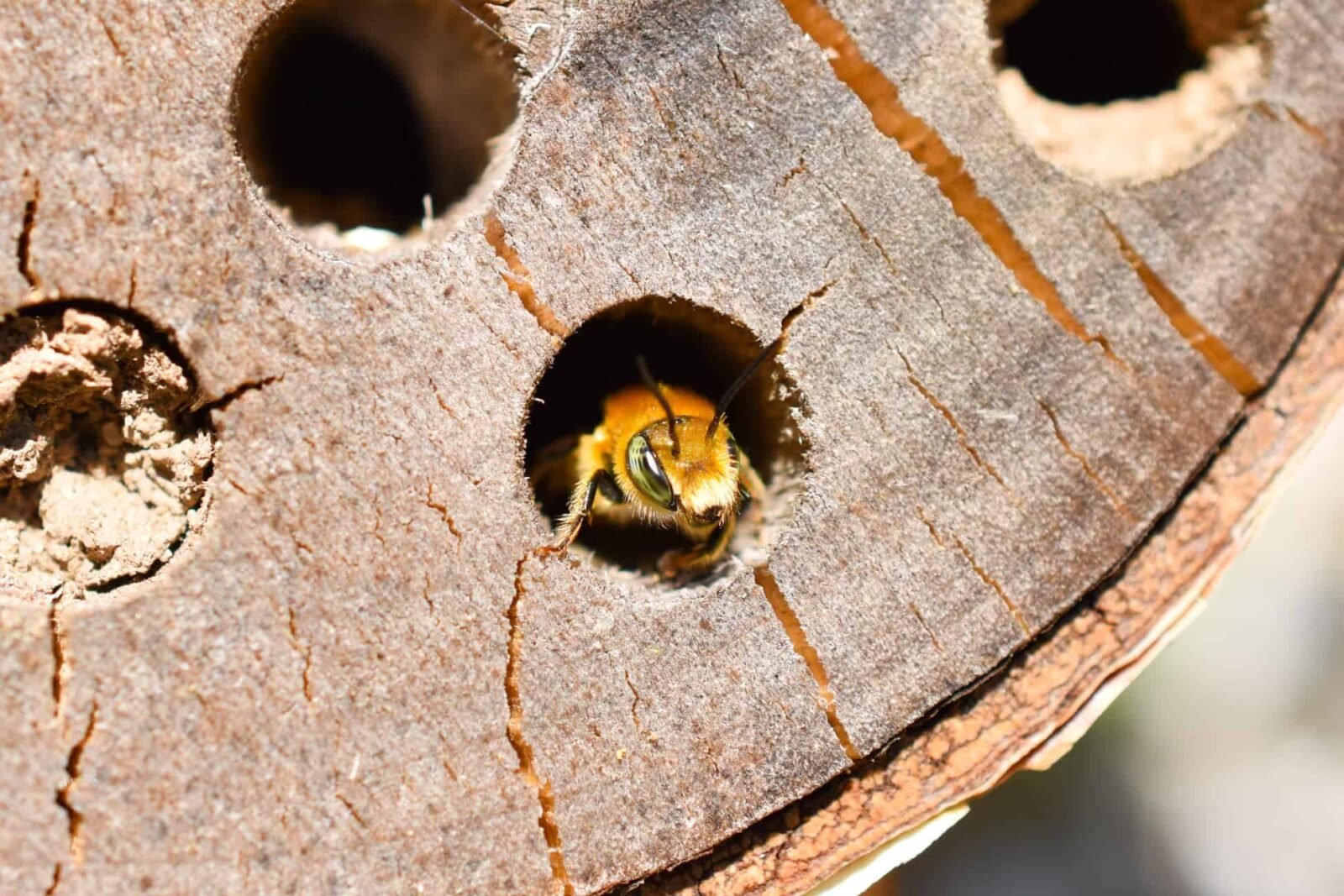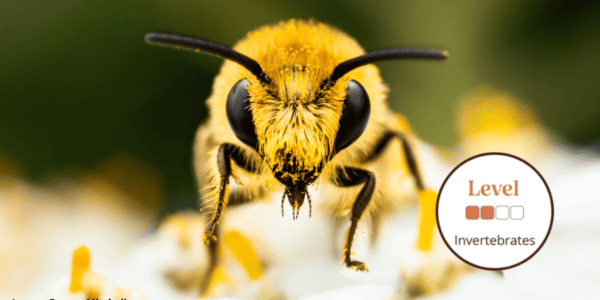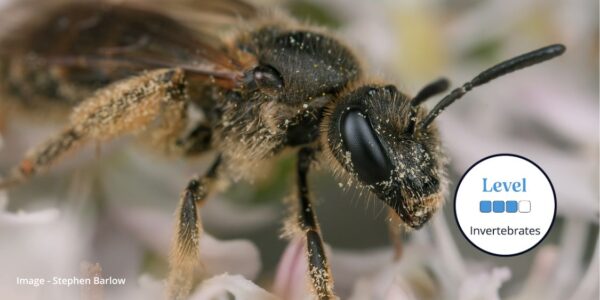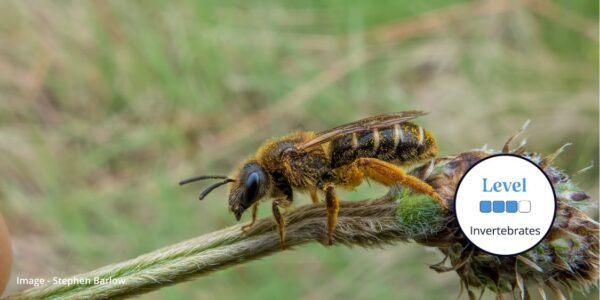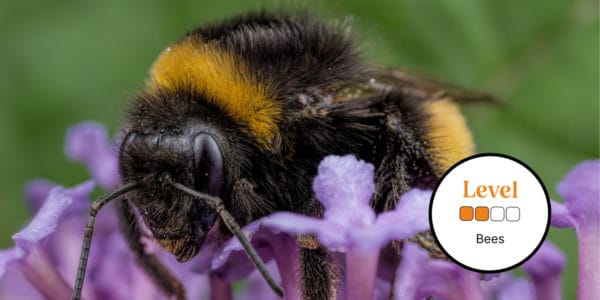There are over 20,000 species of bee worldwide, each with its own unique behaviours, life cycles, and lifestyles.
This course explores the varied nesting ecology of UK bee species and the particular niches they inhabit. We also look at the guidance given to help inform those who wish to provide artificial nesting sites for the UK’s native bee species.
This course will cover:
- Bee Nesting Ecology
- Artificial Nesting Provisions and Nest Threats
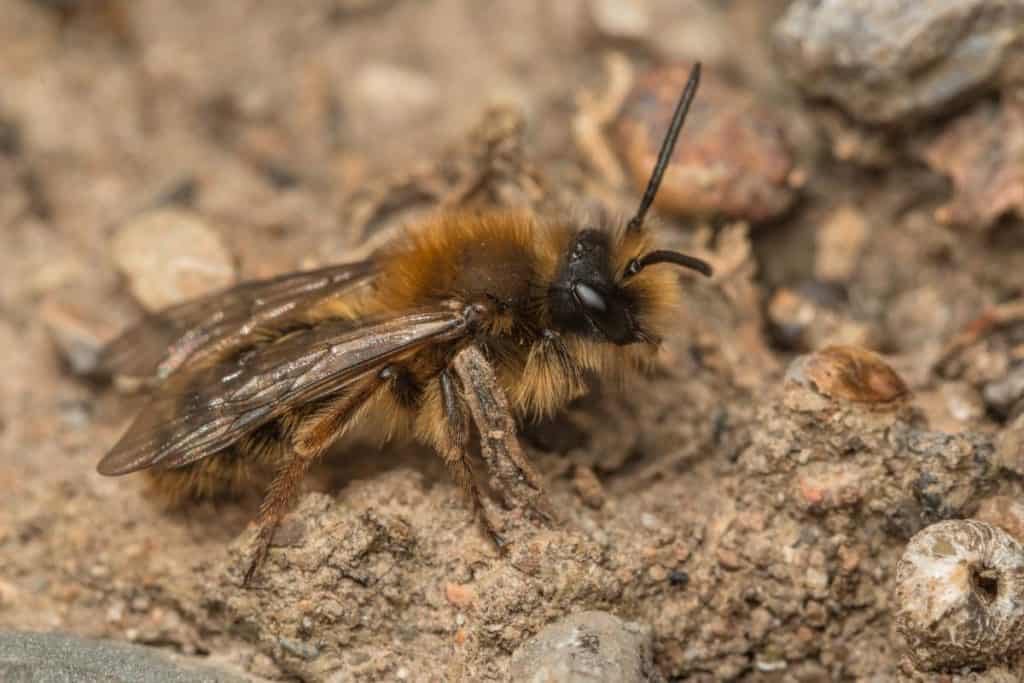
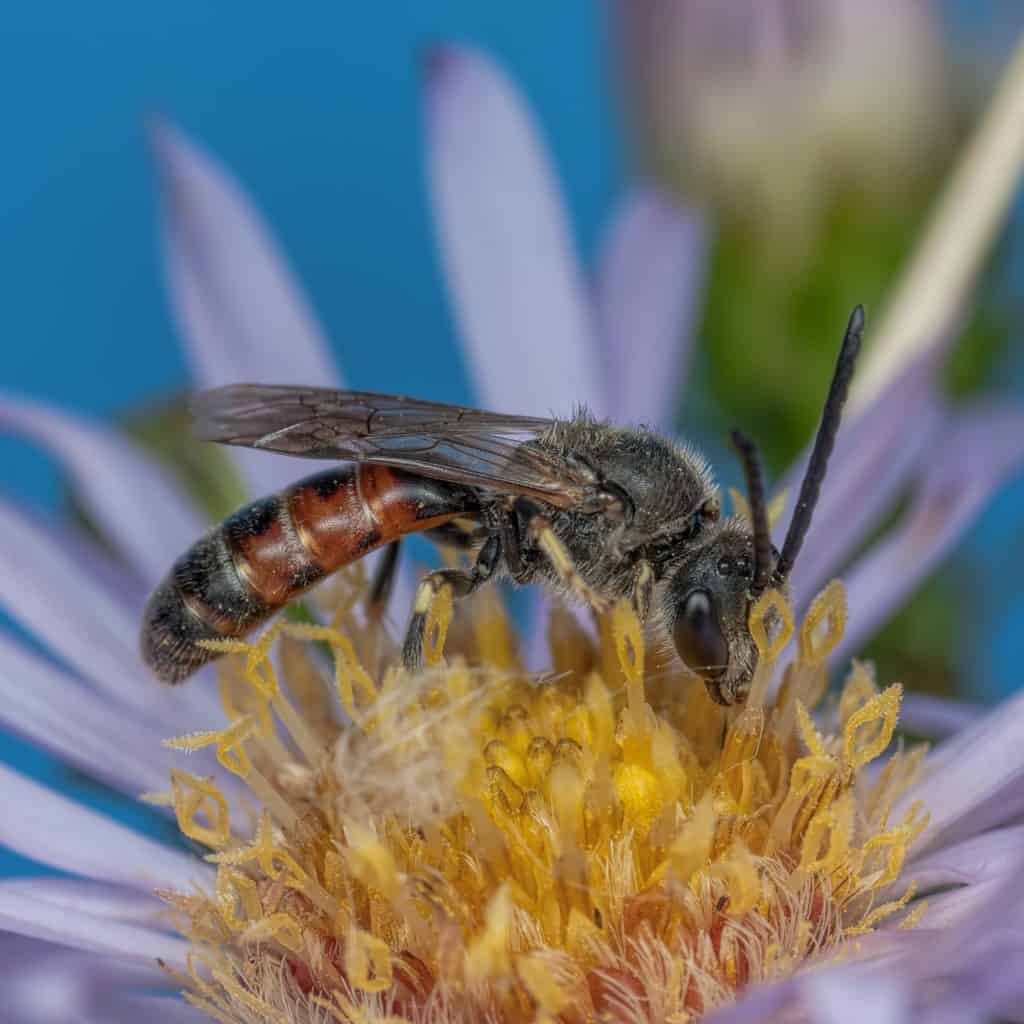
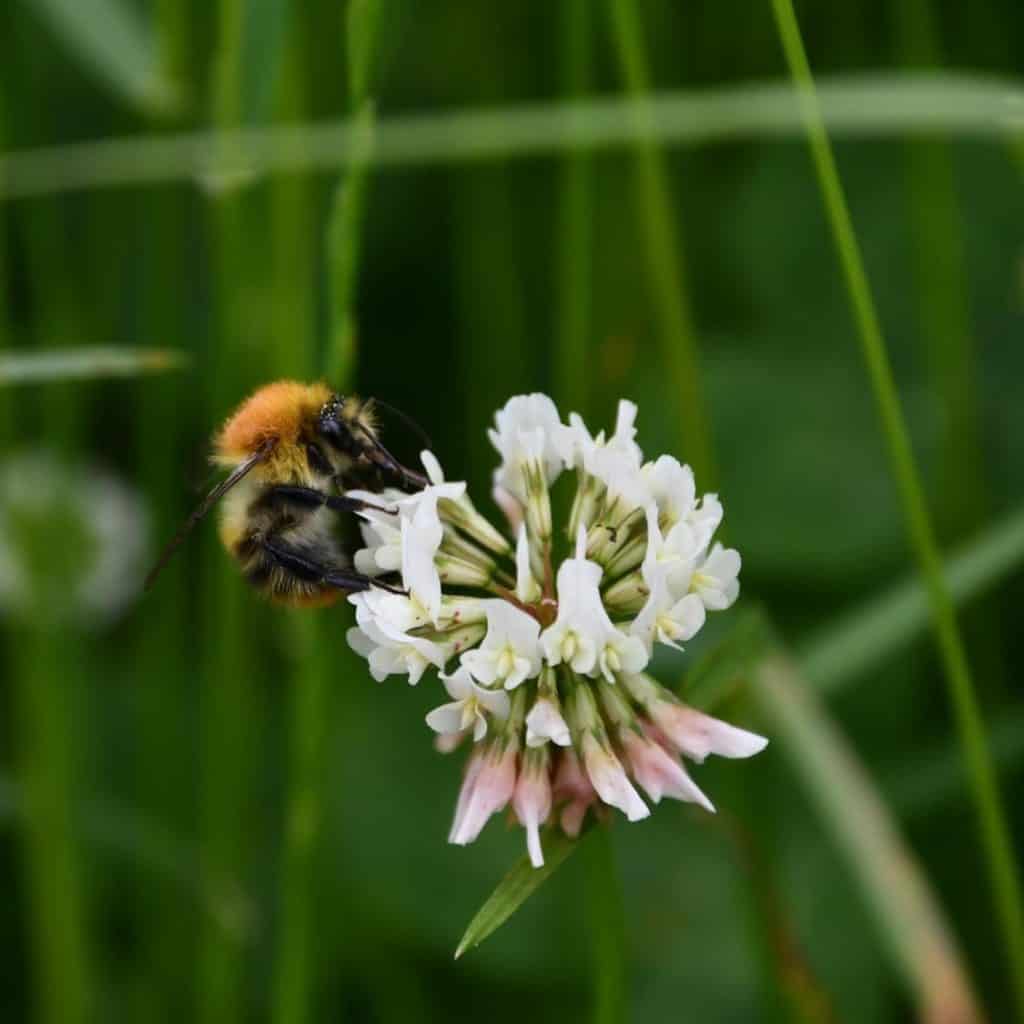
Read More
This course begins with an in-depth look into the nesting ecology of bees, including the conditions they require to successfully nest in an area, the structure and architecture of brood cells and the nesting behaviour of different bee families.
The second week focuses on the construction of artificial nests for bees and their use and effectiveness. Learners will also look at the threats nesting bees face including environmental conditions and nest invaders.
The second week also includes the introduction of the tutor marked assignment, where learners will be asked to design an artificial nesting provision for a bee species, or group of their choosing.
By the end of this course you will be able to:
- Define the main types of nesting behaviour found in UK bee species.
- Understand the nesting requirements of a range of UK Bee groupings.
- Name a range of threats encountered by nesting bees.
Give examples of suitable artificial nesting provisions for a range of UK bee groupings.
Who Should Attend? – Nature enthusiasts, students, wildlife gardeners, ecological recorders, early career ecologists.
Knowledge Level – Intermediate. Level descriptors can be found on the following webpage: Framework and Course Level Descriptors
Prior Knowledge – Learners should know the basic anatomy and terminology associated with bee species before taking this course. No identification experience is necessary
New to bees?
We recommend completing Discovering Bees before completing this course.
This is not an identification course.
Please note – bookings will close 2 working days before the course start date to allow for all participants to be enrolled to the online platform – bookings will not be taken after this time.*
*Bookings will close sooner if course capacity is reached
Understand how our online courses are delivered
Live Webinar Information
There is one webinar associated with this course, taking place at the end of the first week. Please see the date listing below for the day and time.
Please note – webinars will be recorded and uploaded to the virtual learning platform for learners unable to attend.
About the Tutor
Aaron Bhambra
This course was developed with Aaron Bhambra, an entomologist from the West Midlands who has been studying insects for several years as a pollinator specialist and insect ecologist. His main interests are with ‘urban’ invertebrates and the countless fascinating species which can be found in towns and cities across the UK.
His previous research has focussed on solitary bees, developing habitats for these beneficial and often undervalued pollinators throughout Birmingham, with the Peoples Trust for Endangered Species and the British Entomological and Natural History Society. Aaron started his love for bees with the Field Studies Council as a volunteer on their BioLinks courses, before progressing through their learning pathway into a tutoring role. Aaron joined the BioLinks project team as a project officer developing and delivering online bee courses before moving on to undertake a PhD studying pollinators.
Example Timetable
Topic One: Bee Nesting Ecology
- Self-study material available on course start date
- Live webinar at the end of week 1
Topic two: Artificial Nesting Provisions and Nest Threats
- Self-study material is available at the course start date.
- Tutor marked assignment
All activities and content are available until the designated course end date.
Time commitment
This course will require approximately 8-10 hours of your time. This includes covering course materials and activities on our Moodle learning platform.
What's Included
The course has been carefully created to help you continue to build and develop your knowledge as the course progresses. With content crafted to the online Moodle Platform and bespoke to the Field Studies Council.
The course includes:
- A single 45-minute interactive Zoom workshop to connect with the tutor and other participants
- Expert tuition for which the Field Studies Council is renowned
- Activities to work on independently in advance of each Zoom workshop
- Tailored course completion certificate
Once registered, you will follow well-illustrated, user-friendly ’books’ to pick up knowledge. Quizzes and skill checks will give you instant feedback on your learning. Forums give participants the chance to interact with each other as well as a place to share work.
Bursaries and Subsidies
Student Discount
This course is eligible for a student discount. If you are a current student, please use discount code BioStudent20 at checkout for 20% off all Biodiversity courses.
Natural History Bursaries
There are a number of natural history bursaries available to help with the cost of your course. To find out if you and your chosen course are eligible, read more here.
Before You Attend
Accessing Your Course
- Once you sign up you’ll receive an email at least 24 hours in advance of the course opening with details of how to access our easy-to-use platform, Moodle.
- Moodle can be accessed through a browser or an app.
- Webinars are via Zoom so you won’t need any new software to attend
Recommended Devices
It is recommended that you access your course through a PC or laptop. Please be aware that there will be reduced functionality if you decide to access the course through a tablet or smartphone. The Field Studies Council is unable to email content directly to you.
Opportunities to attend this course
-
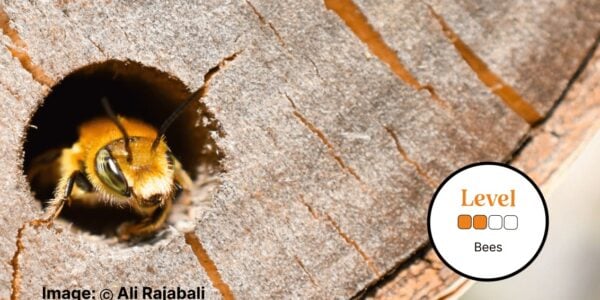
Mon 11, November 2024 - Mon 02, December 2024
The webinars will take place on Monday 11:30 am - 12:15 pm on the following date:
- Week 1: 18th November 2024
- Assignment Due: 25th November 2024
No current dates for this course? Click here to view all the upcoming Natural History courses.
Progress Your Learning
This is a training course from the Field Studies Council, developed by expert tutors with an approachable learning style. After attending this course, you may like to progress your learning with further relevant courses or branch out into other areas of natural history. The Field Studies Council offers both online and in-person courses, so you can choose the learning style that suits you best.
The course gives you the opportunity to immerse yourself in a new subject and acquire novel skills. Our online portal gives you time to study at your own pace and fit the lessons around your own schedule.
If you have any questions about our online courses please check our Frequently Asked Questions
Please email [email protected] if you have any questions.
Group Bookings Made Easy
If you have a group of 10 or more individuals wanting to complete one of our courses, our team are available to discuss your options – from discounts to private team courses. Find out more!
You can rest assured that the absolute best content from an expert in environmental education will be at your fingertips. In choosing a Field Studies Council course, you will be joining thousands of people who learn with us each year.

